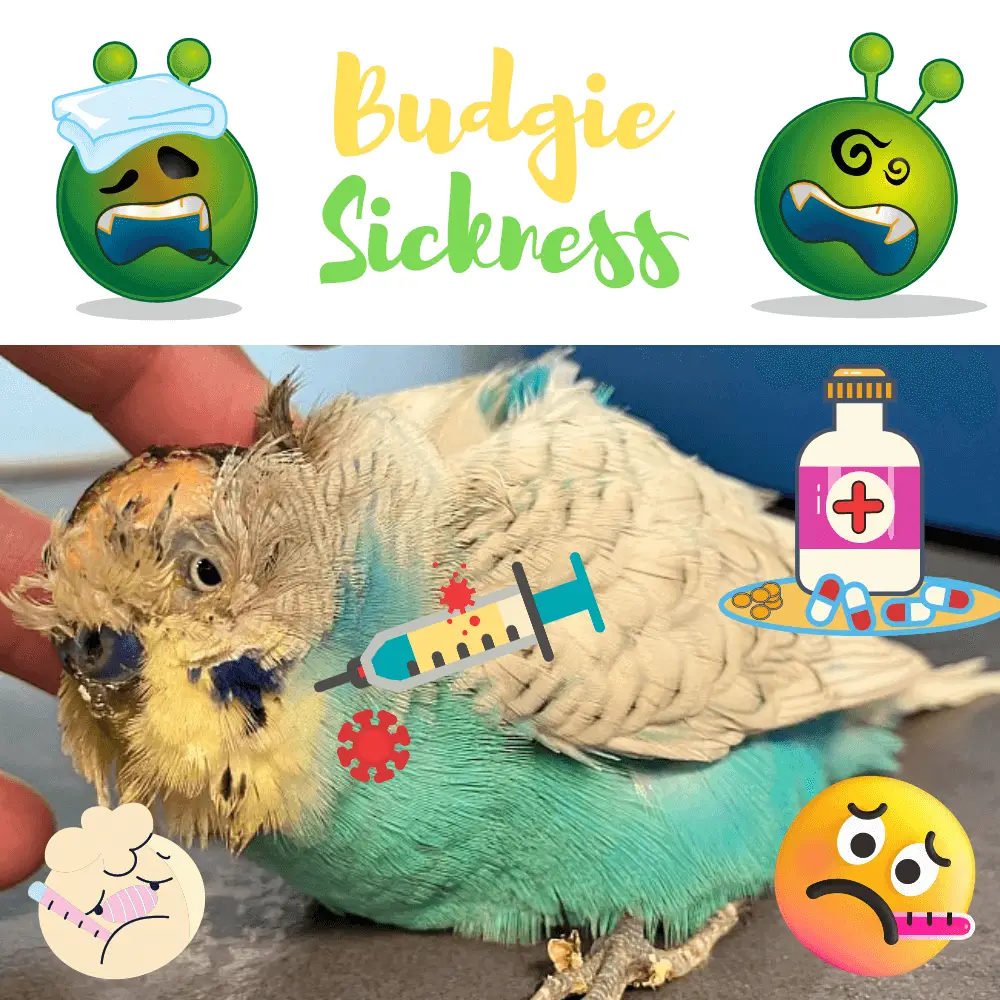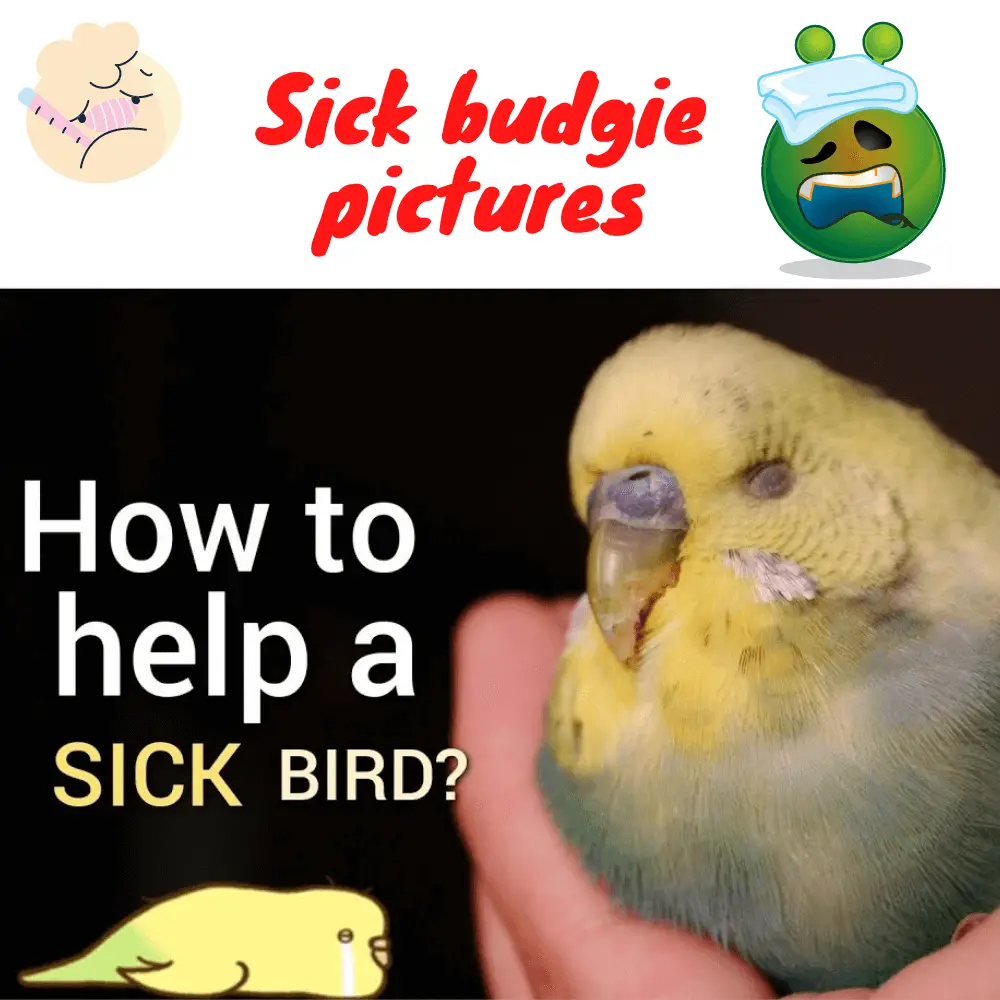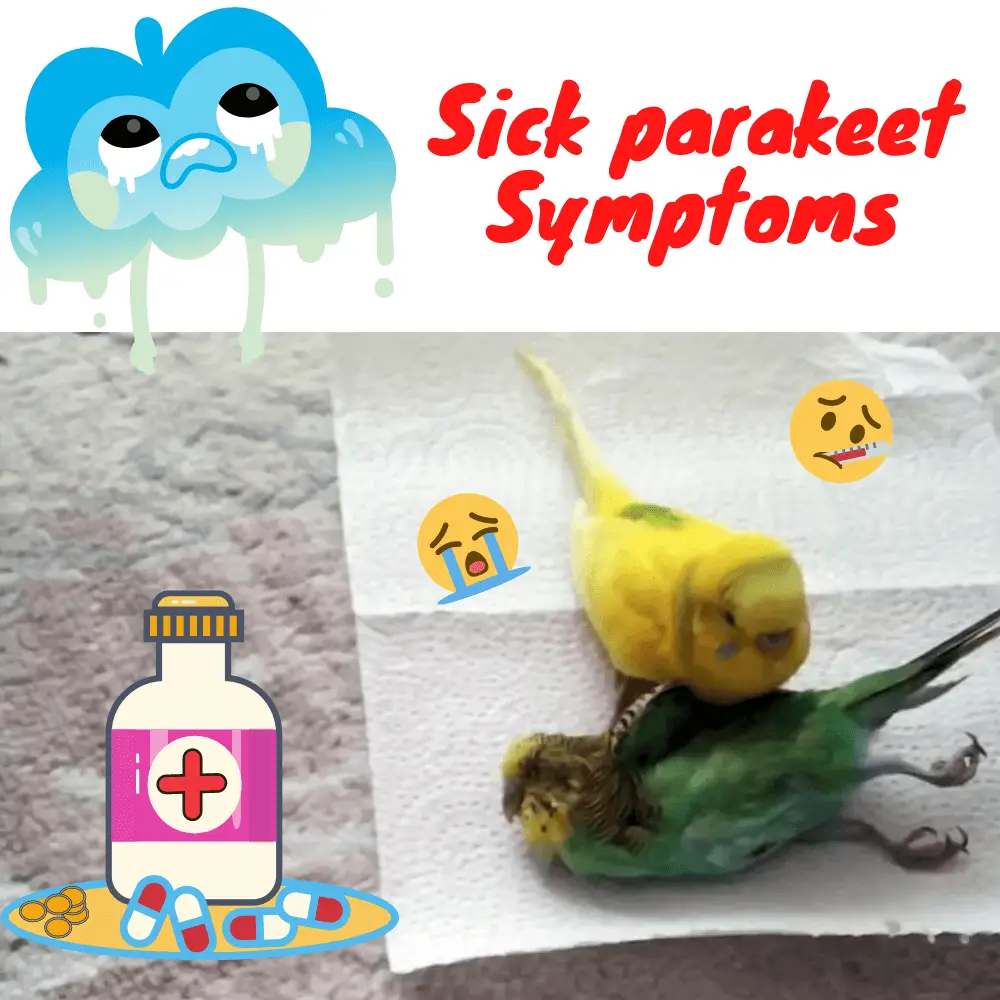
Budgie sickness: If you have just acquired a budgie, you may not know the signs that indicate that it is not doing well. Since the health of birds can deteriorate very quickly if they are not treated when they are sick, it is important to know the indications that inform them about their state of health in order to be able to react quickly.
See if his feathers are damaged
Be aware that it can damage its feathers for several reasons
Damage can occur over time or only within a few hours, depending on the cause. Here are some likely reasons that may be behind this.
- Boredom. The bird will get bored if it does not feel mentally encouraged. The fact that he tears out his feathers is a form of distraction for him, much like when a human bites his nails out of frustration or boredom.
- Food. If the bird does not have a balanced diet, it may begin to tear off its own feathers.
- Stress. A person, habitat, or animal can be the cause of stress in the bird. Lack of exercise, perches that are too large or too small, lack of chew toys, noisy or crowded cage locations, etc. can cause the bird to be stressed. So you need to put it in a quiet, quiet, and uncrowded room.
- The disease. A disease or medical condition can cause feathers to be pulled out or lost, such as French molting.
Look for signs of dust mites.
If the feathers are thin or disparate, this can be an indicator of the presence of mites. Also, look for other symptoms of dust mites or parasites. These can manifest themselves as:
- scaly or crusty skin around the beak, eyes, and legs;
- red lesions on the skin
- agitated behavior, especially at night;
- clicking noises;
- tiny red or black spots moving in the cage or on feathers.
Ask your veterinarian for advice.
Observe changes in behavior
All you need to know about sick budgie
Be alert to any changes
Observe if it is lethargic
If your budgie is lethargic and does not react to any of your actions or food proposals, know that this is a sign of illness. She may snuggle up to her perch, breathe heavily, or puff out her feathers. In addition, it may have some of the following signs :
- weakness;
- sitting in a corner of the cage or at the bottom of it;
- falling from one’s perch;
- continually ruffling his feathers;
- being unable to smooth out;
- a lack of activity or the adoption of a strange new posture;
- moving in a circle;
- having seizures or tremors
- getting a lot of sleep;
- changes in her way of singing or you will notice that she no longer sings at all;
- the fact that it clings to the cage using its beak rather than perching.
Pay attention to aggressiveness
Observe if the weather is too hot or too cold
Examine if the weather or environment is warm
If the weather or the surrounding environment is hot, it is possible that the parakeet also has too hot a body. Birds cannot sweat and for this reason, they must use other means to dissipate heat from their body. Several signs can let you know that your budgie may be too hot:
- panting (rapid breathing or more breaths per minute than usual) This is a very serious sign of overheating that requires immediate veterinary assistance, first by telephone, then by consultation;
- the fact that it spreads its wings;
- warm feet;
- red and flared nostrils (opening of the nostrils);
- burning beak;
- Keep in mind that these symptoms can also be noticed if the bird has respiratory problems or a fever. It is therefore important to seek help from the veterinarian immediately.
sick budgie pictures

Examine if the weather or environment is cold
If the weather or the surrounding environment is cold, chances are that the parakeet has a body too cold. Several signs can let you know that your budgie probably has too cold a body :
- the fact that she ruffles her feathers;
- snuggling or rubbing on your paws (to warm them);
- sitting in a corner or finding a hiding place (possibly to get away from a draft).
Look for other signs
Observe the bird’s droppings
- If you notice that a bad smell emanates from the cage, regardless of whether it comes from urine, droppings, or some other source, you can simply assume that the bird is not doing well.
- The presence of a green or yellow discoloration may indicate liver disease, while black or red discoloration may be a sign of internal bleeding.
- Liquid droppings usually indicate that the bird has diarrhea. The presence of damp feathers around the air duct is also another sign of diarrhea.
Look for signs of discharge.
Check for bumps or swollen parts on his body
Pay attention to any regurgitation or vomiting
Examine his eyes

Treating a sick budgie at home
Consult the veterinarian first
Follow the veterinarian’s instructions
Keep the bird convalescing in a warm place
Keep the bird convalescing in a warm, but not too hot place. Avoid putting it in a place where there is noise, drafts, or strong light. Limit the movement of people and animals to the bare minimum.
- Remove distractions from the cage, such as mirrors, bells, or toys.
- Make sure the bird sleeps for at least 10-12 hours. This may require that you deny access to the bird’s resting area to all family members.
- In some cases, it may be helpful to increase the humidity in your home. Discuss this with your veterinarian. This can help you improve breathing if the bird is crowded, but the vet must first give approval.
Keep the fluid level in his body high
You can achieve this by giving the bird foods with high moisture content, such as fruits and leafy green vegetables, provided that the veterinarian has approved this first.
- If you are allowed to give the bird a fruit, float a piece of grape or apple in its water. This may prompt him to drink and take the fruit.
Ask the veterinarian to recommend a diet
Advice
- Do not hesitate to take the bird to the vet if you think it is not healthy. The health of birds deteriorates rapidly if they do not receive the necessary assistance.
- Weight loss is another sign of disease in a bird.
- Make the effort to put bird toys in your budgie’s cage to prevent it from getting bored.
- Birds easily manage to hide the pain and discomfort they feel. Take your budgie to a poultry veterinarian as soon as you notice something is wrong, even if it’s hardly noticeable.
Budgie sick symptoms
SOURCE:Alen AxP




















